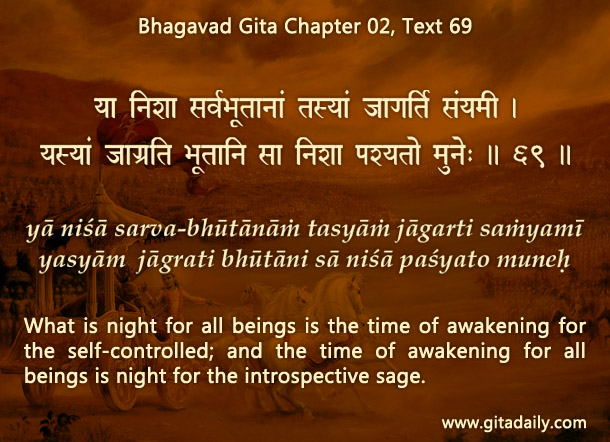Cutting-edge technology prides itself for opening new avenues for enjoyment: so many TV channels, websites and video games, for example.
However, might the freedom offered by the opening of these multiple avenues be more delusional than substantial? This is the surprising and daring proposition of Gita wisdom. Let’s try to understand its rationale.
We are spiritual beings encased in material bodies. Therefore, as the Bhagavad-gita (02.69) indicates metaphorically, we have two essential options for happiness: material and spiritual. The materialist option has many avenues that allure us with fantasies of endless enjoyment. However, as we explore these avenues for material happiness, we soon recognize a common pattern in all those avenues: the promise of material enjoyment rarely completes the journey from imagination to actualization. The enjoyment that we experience always turns out to be far lesser and poorer than our anticipation. The more we exhaust the avenues for material enjoyment, the more we understand by intelligence or experience or a combination of both that the materialist track to happiness is a dead-end.
This understanding pushes us to explore other options for happiness. If we are fortunate, we stumble on devotional service and relish authentic spiritual happiness thereof, which fulfills our heart far more than the best material enjoyment.
Unfortunately however, when the avenues promising material enjoyment are inexhaustible, as happens due to current technology, then we stay enamored by the vain hope that we will find material happiness in some avenue that we haven’t yet explored: “I have just not browsed the right channel at the right time.”
Thus our mind stays crowded with delusional hopes of material enjoyment, and we rarely, if ever, explore spiritual happiness.
Does this loss of the option for spiritual happiness deserve to be celebrated as an expansion of our freedom?


Leave A Comment